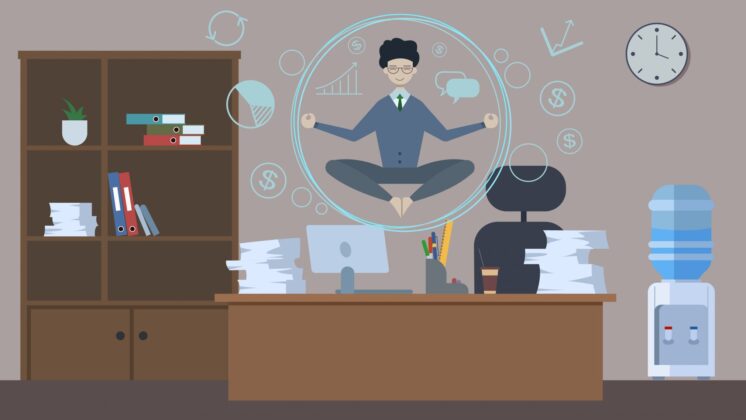2020 will likely be remembered as the year people around the world dramatically changed the way they live and work. No one could have anticipated COVID-19 or what it brought, but that doesn’t mean pre-coronavirus wisdom can’t help us now.
Search Inside Yourself, by Chade-Meng Tan, was published in September 2014, six years before the pandemic, but its insights can give us a fresh approach to tackling rapid change and stress. In difficult times like these, it’s more important than ever to stay calm.
After working as a software engineer at Google, Meng (as he is more commonly known) introduced a program on mindfulness. This program, also called Search Inside Yourself (SIY), has evolved into a leadership institute offering programs to companies worldwide.
Why do computer engineers meditate?
Many people think meditation is something spiritual, and therefore not suitable for those who value numerical or scientific methods. But Meng claims that even engineers, who tend to value logic and numbers over emotions and spirituality, can find success—that is, happiness—with meditation.
And he should know. Meng began his career as an engineer.
In his book, Meng lays out three advantages to justify what he, as an engineer, can offer as a teacher of meditation.
1. Engineers are skeptical and scientific. They need evidence to believe in something. So when Meng set out to develop SIY, he did so based on science.
2. A career as a Google engineer taught Meng about EQ, or emotional intelligence. SIY incorporates practical applications of EQ in meditation.
3. Meditation often uses a lot of vague language. Meng translated this traditional language into an engineer’s more practical terminology.
Even those of us who are not engineers may find meditation difficult to understand, let alone practice. Meng’s perspective helps bridge this divide, making meditation feel a little more familiar.
What is the value of meditation?
Search Inside Yourself uses research to demonstrate the value of meditation.
In one example, an eight-week mindfulness training program was held for American office workers in stressful jobs. The results showed a clear improvement in happiness (measured by brain activity), as well as a significant increase in the ability to produce antibodies.
Furthermore, the participants mentioned abilities they developed or improved through the program:
1. Active listening
2. Anger management
3. Calmer reception of criticism
Coronavirus has upended daily routines for millions of people. Some of it’s good: we’re no longer being packed into crowded commuter trains or having to run around in the hot summer heat to visit clients. But while we’ve been released from some stressors, new ones are building up.
Perhaps you’ve found you lose your temper more easily these days?
Or you feel exhausted at the end of a day of back-to-back Zoom meetings?
Or you’re finding that wearing pajamas all day isn’t as comfortable as it should be?
It’s unusual—even unheard of—for so many people to change their lifestyles at the same time, the way we have during the COVID-19 pandemic. But that doesn’t mean this is a once-in-a-lifetime event. Our world will continue to undergo unexpected changes, and we will have to adapt.
Even if things do go back to “normal,” there’s no such thing as a life without stress. However, everyone can find ways to relieve or reduce stress. Couldn’t we all use a little more active listening, anger management, and thicker skin in our skill set?
How can you incorporate meditation into your life?
How do you ease meditation into your routine, especially if you’re a skeptic? Even if you know it works, it’s hard to start something new.
Meng offers some simple meditation methods, among which he particularly recommends walking meditation. As you walk, he says, pay attention to your movement and the sensation of every single moment. If you start to feel your focus slipping, gently pull it back.
And no, you don’t need to find a quiet room with no distractions for this to work. Meng says he does walking meditation every time he goes to and from the restroom in the office.
Then there’s the other common obstacle: what if you find it easy to start meditating, but harder to keep going?
Meng suggests focusing on the positive: finding it easy to start meditation is good news. But he also fully acknowledges the difficulty of continuing, and for this he shares some ways to make meditation a habit. These aren’t exactly groundbreaking: “try it with a friend” and “don’t push yourself too hard.”
But again, focus on the positive:
Perhaps by just reading Search Inside Yourself, the wall between you and your new life with meditation is already coming down.




